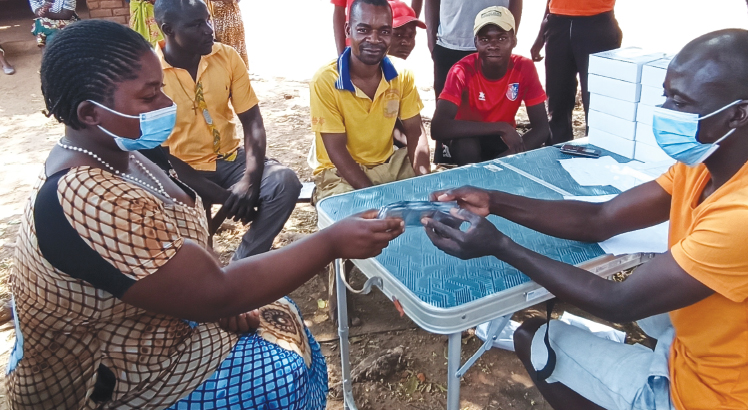Unsafe abortions haunt youths
A
s a young man, Ibrahim Rajab took the responsibility of leading his fellow youths in Traditional Authority (T/A) Malengachazi in Nkhotakota District.
He narrates how difficult it has been for many youths in the area to access sexual reproductive health services.
Narrates Rajab: “We are mostly vulnerable when it comes to accessing certain services in our health facilities because much as they claim to have the space for youth-friendly health services, our needs are not met.
“Nkhotakota District Hospital has no special room for young people to meet with service providers. We have advocated for this for long, but nothing has materialised.”

He says this has provided room for increased cases of unsafe abortions as those who cannot access contraceptives or abstain from sexual activities end up getting unplanned pregnancies.
“What we want is for the youth to easily access these services from their peers because most of them feel shy to go to the hospital. They also need psychological help when pregnant,” Rajab says.
He also stresses the need to review laws on termination of pregnancy saying if young people get pregnant, they should be given the chance to terminate the pregnancy to reduce unsafe abortions.
According to the 2015-2016 Demographic Health Survey, an estimated 141 044 induced abortions occurred in Malawi in 2015.
A joint study by College of Medicine and the US-based Guttmacher Institute reveals that more than 140 000 backstreet abortions take place illegally every year in Malawi, resulting in 12 000 deaths.
Stella Phiri from Yadama Village Development Committee in T/A Kanyenda in the district agrees with Rajab on the increase of teen pregnancies.
She says many girls and young women use harmful objects to terminate pregnancies for fear of being mocked by peers and dropping out of school.
Says Phiri: “We have witnessed a few girls who have used various items and substances, including cassava stems, detergents and aloevera leaves to terminate pregnancies.
“When asked the reasons for doing this, they say people, especially their parents, would be ashamed of them if they gave birth at a tender age. They work with mother groups to cheach young people life skills.”
She says the mentorship activities are helping them to decrease the numbers of teenage pregnancies and efforts to introduce by-laws to keep girls in school.
Unsafe abortions account for 18 percent of maternal related deaths in the country which, according to statistics from the Ministry of Health, stands at 439 in every 100 000 deaths.
To address the challenges, Family Planning Association of Malawi (Fpam) is implementing the Women’s Integrated Sexual Health 2 Access Choice Together Innovate Ownership Now project to ensure equal access to services that prioritise women and girls.
Fpam executive director Donald Makwakwa says the project is incorporating views from various stakeholders, including religious and traditional leaders to address some of the challenges.
He says: “The project ensures that young people access sexual reproductive health services and that there is equal access to such services regardless of geographical or economical position of an individual.”
Nkhotakota District Pastors’ Fraternal chairperson Lawrence Yona says much as cases of unsafe abortions continue happening at an alarming rate, children need to be brought up in an environment where they are able to differentiate right from wrong.
He says: “As parents and leaders, let us groom our children to refrain from bad practices, including sexual activities outside wedlock so that we stop talking about unsafe abortions.”
Nkhotakota District Council youth officer Aberson Mwale says a youth-friendly health services room is needed.
He says: “Our office always wants what is best for the youth and this time, their access to these services is a priority because not all of them can abstain from sexual activities. Times have changed.
“So if we cannot contain them, why not give them the protection they desire.”
Ministry of Health national coordinator for reproductive health on adolescents and youth programme Hans Katengeza says young people continue to complain about being sent back when they want to access the services of their choice, especially contraceptives because of their age.
He says: “If we are able to unpack and take care of the age bracket based on their sexually active ages, we will be able to offer the services to those demanding them.
“We are advocating for a change in policies to reflect on the issue to do with age when it comes to accessing the services in our facilities. We believe that will be one way of reducing cases of unwanted pregnancies.”
According to the 2020-2028 Malawi Youth-Friendly Health Services Training Manual, there is no minimum age for accessing contraceptives.





